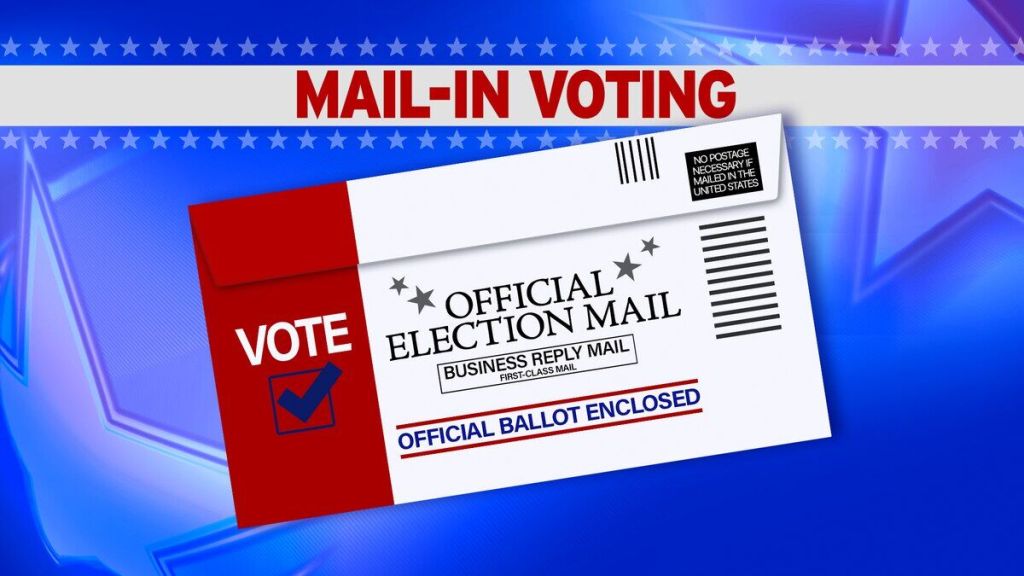Impeding ‘We the people’ from voting
Published 11:00 am Wednesday, March 10, 2021

- 2020 Mail Ballot
After a noisy election season of discontent, Republicans see their road to recovery in discouraging eligible Americans from voting.
The strategy is embodied in scores of bills they have filed with state legislatures to restrict voter access in advance of the 2022 midterm and 2024 presidential elections.
It’s an approach deployed in the past to discourage Black, Hispanic, working-class and young voters. Among the tactics by both parties over the years: poll taxes, literacy tests, purging registration rolls, and burdensome voter ID rules.
Last year was an exception. Health concerns over the coronavirus pandemic caused most states to allow greater mail-in, absentee and early voting — rules previously baked into law in Colorado, Oregon, Washington and Arizona — to complement in-person Election Day voting.
The results accentuated representative democracy. More than two-thirds of the nation’s voting-eligible population cast ballots, the highest percentage since 1900, when three-quarters of eligible male voters reelected President William McKinley. Women could not vote for another 20 years.
The anticipated high voter participation by mail caused President Trump to predict his fate, denouncing mail voting and declaring that if he lost, it would be due to a rigged election. It is a bitter-loser false narrative he still repeats today — and which inspired hundreds of his supporters to insurrection at the Capitol on Jan. 6.
Mail ballots proved voter friendly in the 2020 election, driving the huge turnout despite the pandemic. It had security advantages of checking signatures against registration documents and the ability to detect suspicious voting patterns.
America has had a sad history of impeding the right to vote. Originally, only white men 21 and older who owned land could vote. Eventually, constitutional amendments extended the right to all white men, people of color, women and citizens at age 18.
The changes enlarged the electorate. Yet they did not prevent states from enacting inequitable voting rules under the faux cover of preventing fraud. The South’s Jim Crow laws were a prime example of deliberate racial barriers.
Now the Trump-controlled Republican Party wants to clamp down on mail and early voting under the guise of preventing widespread fraud it claims occurred in 2020. Numerous federal and state courts and GOP Attorney General William Barr debunked that baseless theory.
In reality, Republicans fear the changing demographics in America and big turnouts when voting is made convenient by mail. They were moved to action by President Biden’s November defeat of Trump, and Democrats’ control of the Senate by winning Georgia’s two seats in the January runoff election.
Trump and his Republican acolytes view mail-in and liberal absentee voting as doomsday. They accounted for nearly half of the record 159 million votes cast in the 2020 presidential election. State and local election officials swore by the integrity of the ballots.
So it is understandable why Republicans seek to now restrict voting rights. It is a means of self-preservation instead of an opportunity to broaden the GOP base, including among Black and Hispanic voters who show signs of breaking out of their steadfast preference for Democrats.
Republicans fear a flood of mail votes will fuel a wave of Democratic dominance. They would dam the wave by eliminating mail-in voting, tightly restricting absentee voting, reducing early voting and prohibiting it altogether on Sundays when “Souls to the Polls” voter turnout is a tradition following services at predominantly Black churches.
Democrats stand little chance of thwarting those constraints in Republican dominated state legislatures. They hope to counteract them with federal voting rights legislation that allows wide use of mail-in ballots and no-excuse absentee voting, sets a 15-day minimum for early voting, and requires states to use their government records to register citizens to vote.
Majority Democrats recently passed the legislation in the House, but it faces an uncertain fate in the evenly divided Senate, where they need 10 Republican votes – unless they scrap or find a way around the filibuster rule to set up a simple majority decision, with Vice President Kamala Harris breaking a tie vote.
Republicans are counting on their gambit playing across America. But do they really see value in restricting eligible Americans from participating in our elections? That could haunt the party long after Trump is gone.
Bill Ketter is the senior vice president for news at CNHI, LLC. Reach him at wketter@cnhi.com.



